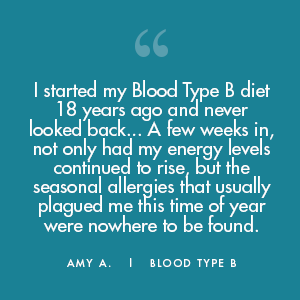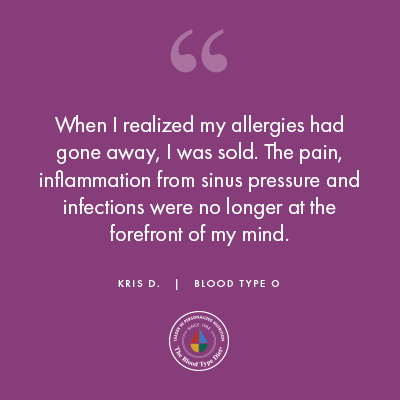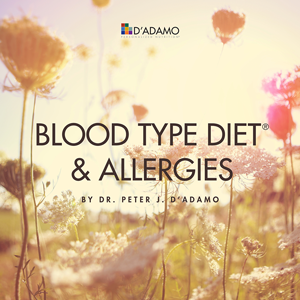Ready to leave?
Oops ! Condition name you have entered is invalid.
You are now leaving Aposbook.com and going to an external site managed by another organization.
Please confirm your email address and try to login again.
This account has been deleted. do you want to restore it?

Validate your email
A verification link will be sent to within the next 2 minutes. Please click it to validate your e mail.
*If you didn't get the link, please check your spam folder
Welcome to Aposbook,
As a registered user, you can benefit from the various free tools and services that we provide.
All you need to do is log in to start discussing with others, interacting, asking questions, and sharing your point of view about the various topics.
You can also write reviews and testimonials about any natural solution you have tried and share your experience. Your feedback can be very helpful.
If you are a health expert, you can add information about any topic or suggest text edit. You can also publish content, including articles and videos, about any topic from the related library section.
Together we can help.
The Aposbook Team
Forgot Password?
A validation link will be sent to you by email. Please confirm your address to log in
*If you didn't get the link, please check your spam folder
Please log in to use this feature
Your account has been suspended because you have violated our code of conduct. If you think this was a mistake, you can contact us by email at: support@aposbook.com "Contact us" form.
Success! Thank you for your feedback. Your contribution can make a difference. Together we can help each other.


Can Blood Type Diet Reduce Allergy?
Complete Guide to Blood Type Diet For Allergy
Possible causes of Allergy from the Blood Type Diet perspective
According to the blood type diet, which was created by naturopathic physician Peter D’Adamo in 1996, your blood type determines your risk factor for allergies.
According to the blood type diet theory or hypothesis, two factors affect the immune system and increase a person’s risk of developing or exacerbating their allergies:
1- Consuming harmful lectins: specific blood types are allergic to foods containing lectins that are incompatible with their ...
Possible causes of Allergy from the Blood Type Diet perspective
According to the blood type diet, which was created by naturopathic physician Peter D’Adamo in 1996, your blood type determines your risk factor for allergies.
According to the blood type diet theory or hypothesis, two factors affect the immune system and increase a person’s risk of developing or exacerbating their allergies:
1- Consuming harmful lectins: specific blood types are allergic to foods containing lectins that are incompatible with their blood type.
These harmful lectins can provoke an allergic reaction because they act as allergens and trigger an agglutination reaction around the food, initiating an immune response to fight this foreign substance that is perceived as a threat to the body.
A person’s reaction to lectins present in different foods varies depending on whether or not he or she secretes blood type antigens into bodily fluids, such as urine or saliva. An individual’s secretor status affects the risk of developing allergies.
For instance, individuals who secrete antigens are called secretors, while those who do not are called non-secretors. Non-secretors are more likely to develop allergies because they do not have antigens that protect against harmful lectins.
2- Having a leaky gut: Leaky gut is a condition where the walls of the gastrointestinal (GI) tract are damaged. As a result, undigested food can “leak” out of the intestines and get into the bloodstream. Accordingly, this can cause lectins and allergens to flow out of the gut into places where they do not belong, initiating an immune response. “Lectins can also bind to IgE molecules,” causing them to “release histamine,” leading to allergies.
How different blood types are affected by Allergies
According to the blood type diet’s hypothesis, each blood type is affected differently by allergens.
- Type O: lectins react aggressively with IgE molecules, causing more aggressive allergies and inflammation.
- Type A: produces more mucus and high levels of selectins (proteins that help white blood cells adhere to blood vessel walls) in response to allergies. This causes an aggressive allergic reaction leading to more intense inflammation.
- Type B: have sensitive lungs, so they are more affected by lung viruses and asthma.
- Type AB: are well-protected against allergies, although they have lower overall immunity compared to other blood types.
Therefore, because of their blood type, Types O and A are most susceptible to allergies, while types B and AB are more protected against allergies.
Learn everything about allergy and find all the natural solutions to treat it naturally, including various diet programs, alternative medicine, vitamins, supplements, herbal medicine, and home remedies.
Why the Blood Type Diet helps treat Allergies
The blood type diet helps to prevent or treat allergies because it recommends foods that are best suited to different blood types. It encourages people to eat foods that build up immunity, restore immune system function, and stop inflammation. It also limits or restricts foods that contain lectins that trigger an unnecessary immune response.
This is because some toxic lectins act as allergens and trigger an immune response. Therefore, staying away from ...
Why the Blood Type Diet helps treat Allergies
The blood type diet helps to prevent or treat allergies because it recommends foods that are best suited to different blood types. It encourages people to eat foods that build up immunity, restore immune system function, and stop inflammation. It also limits or restricts foods that contain lectins that trigger an unnecessary immune response.
This is because some toxic lectins act as allergens and trigger an immune response. Therefore, staying away from lectins helps prevent an overblown immune response and decreases the risk of developing allergies.
The diet also advises certain blood types with a leaky gut to avoid foods that contain harmful lectins because both lectins and allergens can flow out of the digestive system and get into the bloodstream.
When in the blood, the body then perceives these lectins and allergens as foreign substances and initiates an immune response to destroy them. Thus, if people who have intestinal damage stay away from harmful lectins and allergens, they will avoid developing allergies.
Alternatively, the blood type diet recommends that each blood type eat foods that contain “medicinal lectins” that improve the body’s utilization of different foods. Some foods, such as pineapples, also contain lectins with anti-inflammatory properties, reducing a person’s risk for allergies.
The diet also encourages all blood types to stay away from neutral foods. Neutral foods tend to have less nutritional value than the beneficial foods, and consuming them does not build up a person’s immunity.
How the Blood Type Diet works for Allergies
The blood type diet works for allergies by reducing the amount of stress on the body. That way, the body can respond to the allergens appropriately without an overblown immune response.
The blood type diet advises specific blood types to avoid consuming toxic lectins that may activate an immune response. Instead, it prescribes foods that contain “medicinal lectins” that boost immunity and reduce inflammation caused by an overactive immune response.
For instance ...
How the Blood Type Diet works for Allergies
The blood type diet works for allergies by reducing the amount of stress on the body. That way, the body can respond to the allergens appropriately without an overblown immune response.
The blood type diet advises specific blood types to avoid consuming toxic lectins that may activate an immune response. Instead, it prescribes foods that contain “medicinal lectins” that boost immunity and reduce inflammation caused by an overactive immune response.
For instance, blood type A and AB individuals need to stay away from the lectins in red meats because the lectins found in red meat cause agglutination and activate the immune system. Meanwhile, blood type O and B individuals need to avoid wheat and wheat-based products because wheat lectins bind to receptors on white blood cells and trigger an immune response.
The blood type diet also recommends people who have leaky gut to avoid foods containing lectins that are incompatible with their blood type antigens. That way, lectins and allergens that enter the bloodstream through the damaged GI tract will not initiate an immune response, which may lead to allergies because lectins can bind to IgE molecules to release histamine.
Blood Type Diet foods for Allergy
The blood type is not based on the amounts of macronutrients or calories your body consumes. Instead, it focuses on restricting food groups for each blood type to help maintain proper body functions and prevent and treat medical conditions.
The food types for each blood type are listed below:
- Blood Type O: can eat lean meat, poultry, fish, and vegetables, and fewer grains, beans, and dairy.
- Blood Type A: can eat more ...
Blood Type Diet foods for Allergy
The blood type is not based on the amounts of macronutrients or calories your body consumes. Instead, it focuses on restricting food groups for each blood type to help maintain proper body functions and prevent and treat medical conditions.
The food types for each blood type are listed below:
- Blood Type O: can eat lean meat, poultry, fish, and vegetables, and fewer grains, beans, and dairy.
- Blood Type A: can eat more fruits and vegetables, beans and legumes, and whole grains with little to no meat (vegetarian diet).
- Blood Type B: can eat green leafy vegetables, eggs, most meats (except chicken and pork), and low-fat dairy. They should avoid wheat, corn, lentils, tomatoes, peanuts, and sesame seeds.
- Blood Type AB: can eat seafood, tofu, dairy, beans, and grains. They should avoid kidney beans, corn, beef, and chicken.
Blood Type Diet foods for Allergy: by blood type
Foods for Blood Type O
People who are blood type O can eat these specific foods because they do not contain harmful lectins, boost immunity, and improve digestive system function.
- Lean organic grass-fed beef
- Richly oiled cold-water fish like halibut, cod
- Flax (linseed) oil
- Olive oil
- Seaweed
- Onions
- Garlic
- Pineapple
- Turmeric
- Green tea
Foods for Blood Type A
People who are blood type A can eat these specific foods because ...
Blood Type Diet foods for Allergy: by blood type
Foods for Blood Type O
People who are blood type O can eat these specific foods because they do not contain harmful lectins, boost immunity, and improve digestive system function.
- Lean organic grass-fed beef
- Richly oiled cold-water fish like halibut, cod
- Flax (linseed) oil
- Olive oil
- Seaweed
- Onions
- Garlic
- Pineapple
- Turmeric
- Green tea
Foods for Blood Type A
People who are blood type A can eat these specific foods because they do not contain harmful lectins, boost immunity, and improve digestive system function:
- Soy products
- Flax (linseed) oil
- Olive oil
- Broccoli
- Onions
- Garlic
- Lemons
- Berries like blueberries, cranberries, elderberries, and cherries
- Green tea
Foods for Blood Type B
People who are blood type B can eat these specific foods because they do not contain harmful lectins, boost immunity, and improve digestive system function:
- Lean organic grass-fed meat like lamb or mutton
- Richly oiled cold-water fish like halibut, sardines
- Flax (linseed) oil
- Olive oil
- Cultured dairy products like yogurt, kefir
- Onions
- Broccoli
- Pineapple
- Turmeric
- Berries like cranberries, elderberries
- Green tea
Foods for Blood Type AB
People who are blood type AB can eat these specific foods because they do not contain harmful lectins, boost immunity, and improve digestive system function.
- Soybeans and soy-based products
- Richly oiled cold-water fish (salmon, sardines)
- Cultured dairy (yogurt, kefir)
- Flax (linseed) oil
- Olive oil
- Broccoli
- Onions
- Lemons
- Turmeric
- Green tea
Blood Type Diet for Allergy: recommendations:
- Eat fresh and organic fruits and vegetables: fresh or organic fruits and vegetables have more nutrients. If people eat fruits and vegetables that have been sprayed with pesticides, the chemicals in the pesticides could cause the body to believe it is under attack and overwork the body’s immune system, eventually weakening it.
- Exercise regularly: Peter D’Adamo recommends different kinds of exercise based on your blood type.
The different types of exercise for each blood ...
Blood Type Diet for Allergy: recommendations:
- Eat fresh and organic fruits and vegetables: fresh or organic fruits and vegetables have more nutrients. If people eat fruits and vegetables that have been sprayed with pesticides, the chemicals in the pesticides could cause the body to believe it is under attack and overwork the body’s immune system, eventually weakening it.
- Exercise regularly: Peter D’Adamo recommends different kinds of exercise based on your blood type.
The different types of exercise for each blood type is listed below:
o Blood type O: People who are type O should engage in intense exercising activities like jogging or biking.
o Blood type A: People who are type A should focus on low-level activity and stress-relieving exercises like yoga or tai chi.
o Blood type B: People who are type B should focus on moderate-level exercise and can include yoga or other mindfulness practices.
o Blood type AB: People with type AB blood can combine exercises from blood types A and B.
- Take certain supplements depending on your blood type: the diet restricts the consumption of meat and dairy for specific blood types. This may result in malnutrition, so some blood types must take nutritional supplements to ensure that they get the vitamins and minerals their body needs.
o Blood type O individuals need to take Vitamin C, B12, iron, and folic acid supplements.
o Blood type A individuals need to take Vitamin B, K, calcium, and licorice supplements.
o Blood type B individuals need to take magnesium, ginkgo, licorice, and lecithin supplements.
o Blood type AB individuals need to take Vitamin C, B12, and iron supplements.
Additional supplements suitable for all Blood Types
o Cumin
o Larch arabinogalactan
o Dandelion root
o Ginger
o Stinging nettles (Urtica dioica) leaf
o Rosehip extract or tea
Blood Type Diet for Allergy: what you should avoid in general
All of the blood types should avoid:
- Processed meats: these meats contain high amounts of salt and preservatives that are not good for your body.
- Foods that are high in sugar: high sugar foods can increase blood sugar levels and cause weight gain.
- Simple carbohydrates: simple carbohydrates can cause weight gain because they are broken down and converted into fat.
- Drinking water with meals: do not drink water when ...
Blood Type Diet for Allergy: what you should avoid in general
All of the blood types should avoid:
- Processed meats: these meats contain high amounts of salt and preservatives that are not good for your body.
- Foods that are high in sugar: high sugar foods can increase blood sugar levels and cause weight gain.
- Simple carbohydrates: simple carbohydrates can cause weight gain because they are broken down and converted into fat.
- Drinking water with meals: do not drink water when you are eating because this can slow down digestion.
Specific foods to avoid by Blood Type
Foods to avoid for Blood type O
These foods contain lectins that are harmful to type O individuals:
o Wheat
o Corn
o Legumes
o Kidney beans
o Dairy
Foods to avoid for Blood type A
These foods contain lectins that are harmful to type A individuals:
o Beef
o Pork
o Lamb
o Cow’s milk
o Potatoes, yams, and sweet potatoes
o Certain vegetables, such as cabbage, eggplant, tomatoes, peppers, and mushrooms
o Lima beans
o Certain fruits, such as melons, oranges, strawberries, and mangos
o Poultry other than chicken and turkey, such as duck
o Venison
o Fish, such as bluefish, barracuda, haddock, herring, and catfish
o Some grains and grain products, such as wheat bran, multigrain bread, and durum wheat
o Refined sugar
o Refined carbohydrates, such as white flour and white bread
o Oils other than olive oil
o Artificial ingredients
o Most condiments
Foods to avoid for Blood type B
These foods contain lectins that are harmful to type B individuals:
o Corn
o Wheat,
o Chicken
o Buckwheat
o Lentils
o Tomatoes
o Some nuts like peanuts
o Some seeds like sesame seeds
Foods to avoid for Blood type AB
These foods contain lectins that are harmful to type AB individuals:
o Some beans like red beans, kidney beans, and chickpeas
o Smoked and cured meats
o Chicken, duck, and goose
o Condiments like mustard and vinegar
o Duck eggs
o Some cheeses like American cheese, blue cheese, brie cheese, Camembert, Parmesan, provolone
o Certain fruits like avocado, bananas, bitter melon, coconut/coconut milk, dewberries, guava, mango, oranges, persimmons, and pomegranates
Blood Type Diet for Allergy: precautions
If people know that they are allergic to a specific type of food, they should avoid it, regardless of their blood type.
The diet can be restrictive for some blood types, like type A and type O, so they have to be careful to receive the vitamins and minerals their body needs.
People with chronic health conditions should consult a medical professional or a dietician before starting a diet based on their blood type ...
Blood Type Diet for Allergy: precautions
If people know that they are allergic to a specific type of food, they should avoid it, regardless of their blood type.
The diet can be restrictive for some blood types, like type A and type O, so they have to be careful to receive the vitamins and minerals their body needs.
People with chronic health conditions should consult a medical professional or a dietician before starting a diet based on their blood type because the dietary recommendations for their blood type might not necessarily be good for them.
Always consult with a healthcare professional before starting any new diet or treatment.
Reviews & Testimonials
-
Overall rating
-
Success Rate
-
Effectiveness
-
Accessiblity
-
Safety
-
Fast result
-
Ease of use
Add review
Was solution successfull?
Overall rating score
Rate each parameters
Effective
Accessible
Safe
Fast results
Easy to apply
Review title
Add images to support your review(if any)
Support images
You can review a solution if you have used it personally. Please remain objective and genuine. Your input can help others.
You have already reviewed this
Please rate all parameters.
Success! Thank you for your feedback. Your contribution can make a difference. Together we can help each other.
What science says about Blood Type Diet For Allergy
Views in favor
Dr. Peter D'Adamo / Response to Various Critics
Views against
The Blood Type Diet: Are There Any Real Benefits?
Library center Blood Type Diet For Allergy
Additional benefits of Blood Type Diet
- D'Adamo, P., & Whitney, C. (2004). Allergies: fight it with the blood type diet. Berkley Books.
- D'Adamo P.,& Whitney C. (2002) Eat right 4 your type. London: Penguin.
- D'Adamo, P., &Whitney, C. (2002). Live right 4 your type: the individualized prescription for maximizing health, metabolism, and vitality in every stage of your life. London: Penguin.





















[0]